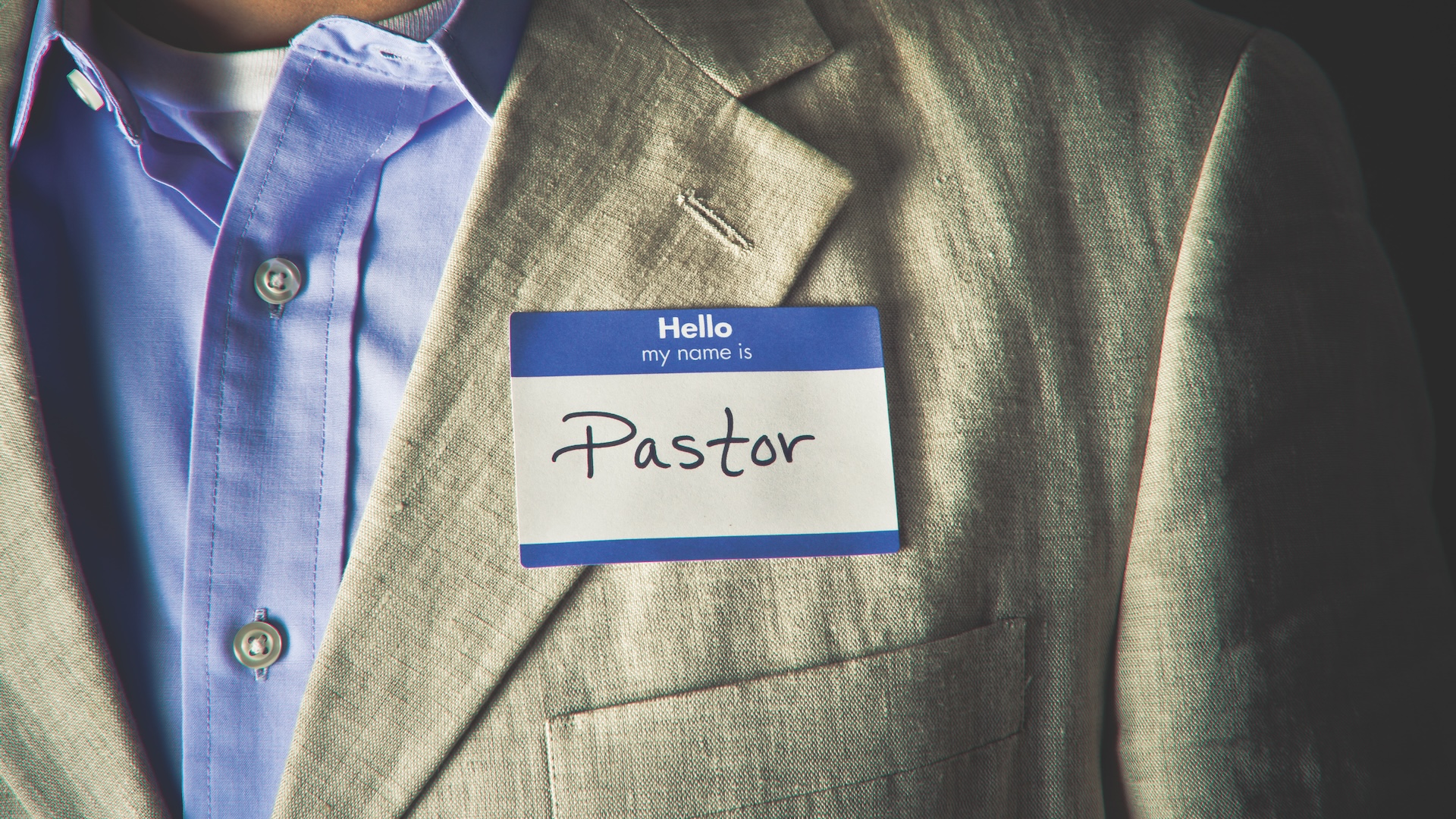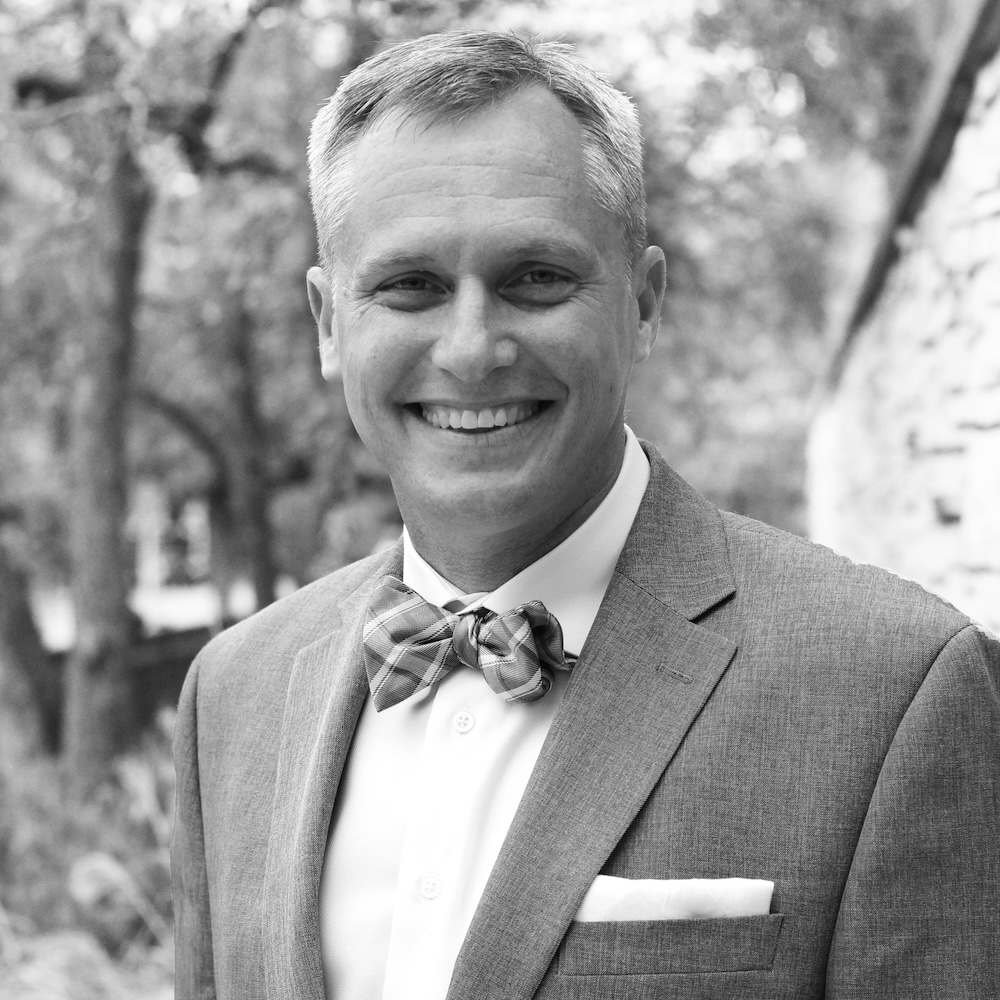Pastoral Titles and What They Can Reveal About Cultural Hospitality
“You have to read this book!” Fifteen years ago, my pastoral colleague Michelle Dodson and I were sitting in a coffee shop in the heart of the neighborhood where we were planting an intentionally multiethnic church. The neighborhood is historically and proudly African American. Even the community’s name, Bronzeville, reflects this history and pride. Discussing the complicated cultural dynamics our young, racially diverse congregation would navigate, Michelle again pointed to the book, The Elusive Dream, by Korie Edwards, a sociologist of religion, and all but made me promise to read it.
A lot has changed since that conversation. In addition to becoming one of our church’s pastors, Michelle was recently installed as assistant professor of ministry and the Milton B. Engebretson Chair in Evangelism and Justice at North Park Theological Seminary. Our church has moved from its initial elementary school location to the park district gym that has been our Sunday home for a decade, and we’ve launched a nonprofit that partners with neighbors in the community to address sources of trauma. Through all of these changes, I keep coming back to the lessons we learned from The Elusive Dream.
In the book, Dr. Edwards used a large data set from the National Congregations Survey to explore the dynamics of multiracial churches like ours. She also spent time in a representative congregation, and her experience in that church helps readers imagine what multiracial churches can feel like to different racial and cultural groups. What she concluded about most multiethnic churches shook me deeply.
She writes, “Given that whiteness is the cornerstone of the racial system in the United States, it plays a fundamental role in how interracial churches function. Interracial churches will not represent a balance between whites’ and racial minorities’ organizational influence or religio-cultural preferences. Rather, the interrelations, religious and cultural practices, and organizational structures of interracial churches will be more representative of the preferences and desires of whites than of the racial minorities in these organizations.”
Here we were, a fledgling congregation of African American, Asian American, and white members, and I was learning that, despite this diversity, we would likely act like a culturally white congregation. Our reconciliation would only be skin deep, more akin to cultural assimilation than to the biblical vision of solidarity that bears witness to God’s love in Christ.
I wondered, could our multiracial church not act monoculturally? Could we be genuinely hospitable to everyone in our community? And if so, how would we know? Edwards helpfully identifies six characteristics of congregational worship that are more likely to be present in Black churches than in white ones: verbal affirmations (“Amen!” “Preach!”), hands raised in worship, spontaneity in worship (dancing, jumping, and shouting, for example), longer service times than most white churches, the presence of a choir, and the lack of a greeting time during the service (which may mean a passing of the peace or something more informal).
Now, these defining characteristics might seem obvious to you, but they were a practical way for me to evaluate whether our young congregation was passively drifting toward white culture or whether we were building something more hospitable, more reflective of our community. For example, when some white members wondered whether a service that sailed past the 90-minute mark was too long, I could remind them that in some contexts ninety minutes might only be the halfway point. And while I’m a pretty reserved person by disposition, Edwards’s observations nudged me to grow in my expressiveness in worship.
If our congregation were to buck the trend of most multiracial churches, we’d need to take this research seriously. Edwards writes that churches that “intentionally structure their congregations to counter whiteness are more apt to develop and sustain egalitarian interracial religious organizations.” As important as the racial diversity of our worship team and preachers was, as helpful as our regular discussions about racial justice were, I was learning to pay attention to a new set of indicators that would tell us where we could grow in our cultural hospitality.
What Do You Call Your Pastor?
Over the years, I added another characteristic of many African American churches—and other churches of color—that I started watching for in our congregation: how members refer to their pastor. A conversation with one of my mentors first got me thinking about this. She shared that the titles she has earned over the years are significant to her as a Black woman. Her ordination and doctorate were hard-won and a source of communal pride. She reflected on the time, not so long ago, when these academic and ecclesial pathways would have been closed to her. More than mere formalities, entire cultural stories of endurance and against-the-odds accomplishment were woven through those titles: Reverend. Doctor.
For example, in his new biography about Martin Luther King Jr., Jonathan Eig recounts the summer of 1955 when the young pastor of Dexter Avenue Baptist Church received his PhD. “Jim Crow etiquette at the time required Black people to address white people as ‘Mr.’ and ‘Mrs.’ but allowed white people of all ages to refer to Black adults by their first names, which is one of the reasons that King began asking white officials in Montgomery to call him ‘Dr. King’ and why members of his congregation exulted in their pastor’s new honorific.”
As I spent time with Black colleagues, I noticed how their churches referred to their pastors. Rarely were they called by their first names; these men and women were “Pastor” or “Bishop” or “Reverend” to their members. I eavesdropped as these friends talked about the role historically played by African American pastors—as organizers, advocates, and representatives to political establishments that generally overlooked their communities—and the respect shown for their efforts in the titles given by their churches.
In the words of one of these pastors, a Latina woman, it’s not hierarchy that a pastoral title communicates; it’s honor.
I noticed as well, visiting Latino churches, that pastors’ wives were often called “Pastora” by their congregations. Occupying an in-between role between clergy and laity, these women were seen as spiritual leaders and afforded an honorific to communicate that authority. In a society that often relegates Latina women to service roles, these congregations ensured that the dignity, wisdom, and spiritual authority of their pastoras were acknowledged.
I also began hearing from friends of color who were pastoring majority white or ethnically diverse but culturally white churches. Having been nurtured in settings in which “Pastor” was a sign of appreciation and esteem, some of these women and men struggled with their white congregants’ custom of calling them by their first name. In the words of one of these pastors, a Latina woman, it’s not hierarchy that a pastoral title communicates; it’s honor.
White people aren’t typically intending to dishonor their pastor by using their first name. Majority culture in the United States has become less and less visibly stratified. While status and class still exert their pull, those formed by the norms of the majority culture are less likely to use the honorifics that make those differences visible. This applies to other roles as well. The preschoolers and kindergarteners at the school where my wife teaches rarely refer to her as Ms. Swanson or even Ms. Maggie; she’s simply Maggie. I chafe a bit whenever I hear one of these cute little kids calling their teacher by her first name, but I also realize that they—and the parents instructing them—don’t mean anything disrespectful by it.
There are many exceptions to these observations. A predominately white church located in a rural setting may be more likely to use honorifics when speaking about their pastor than one in suburbia. Likewise in a white church that leans more formal in its worship and liturgy. A majority Black suburban church that aims to reach their un-churched neighbors might deemphasize pastoral titles as a way to be accessible to their guests. A second-generation Latino church plant rooted in an urban neighborhood may find other creative and contextually relevant ways to refer to their church leaders.
These complicating exceptions point us back to multiethnic contexts like my own congregation as well as to our increasingly culturally diverse denomination. Hopefully by now it’s clear that, as with other church practices, there isn’t a one-size-fits-all answer to the question of what to call your pastor. But if we don’t reflect on these dynamics, we risk defaulting to the assumptions of the white majority, which are not hospitable to everyone.
Given these complexities, how do we demonstrate cultural hospitality to the members of God’s mosaic family who bring with them different assumptions and expectations than our own? In Edwards’s research, she found that people of color in multiethnic churches often choose to sacrifice their cultural preferences for the sake of congregational unity. As members of cultural minority groups, these women and men understand that those of us in the cultural majority are often unaware of subtle but important cultural differences like calling your pastor “Pastor.” So, they choose to sacrifice their preferences for ours.
The dynamic of people of color sacrificing their preferences in multiethnic churches is one we must resist if we are to be culturally hospitable.
As members of the majority, white people have the privilege of not reflecting on our culture, of thinking of our experiences and assumptions as culturally neutral and universally normal. This is the social dynamic that distracts me from noticing someone else’s cultural assumptions. It’s what allows white people to step into a sanctuary full of racially and ethnically diverse worshipers and delight in the diversity without noticing that the cultural assumptions guiding the length of the service, how verbally responsive the congregation is, and so on are all rooted in white norms.
Choosing to Be Self-aware, Curious, and Adaptable
What is needed, then, for a multiethnic church or denomination to be truly culturally hospitable is for those of us in the cultural majority to make three simple choices. First, we can choose to be self-aware. White cultural norms might be normal to some of us, but that doesn’t make them normal for all of our sisters and brothers. Simply acknowledging that our preferences are built on cultural assumptions will go a long way in connecting us to those who have not had the privilege to ignore that connection.
Second, we can choose to be curious. Every so often, one of my social media followers posts their strong opinion about how long a worship service should last. Typically, this goes something like this: “If your worship service lasts more than 60 minutes, you’re doing it wrong.” Now, I don’t mind a shorter worship service, but the notion of a universally ideal length of time is peculiar. What if, instead of assuming that what is best in my context must be best in other contexts, we wondered about why some communities are more likely to embrace shorter or longer service times? Choosing to be curious about why other communities do things differently will help us approach those differences humbly. And, who knows? We might find something helpful to incorporate into our own worshiping communities.
Finally, we can choose to adapt. The dynamic of people of color sacrificing their preferences in multiethnic churches is one we must resist if we are to be culturally hospitable. In our congregation, members commit to being equally uncomfortable about how we do church. Discomfort isn’t the goal, but we recognize that genuinely multicultural communities will always make someone or some group uncomfortable. But no group in any church should bear most of that discomfort.
For example, I know some white people in our congregation would most naturally refer to me by my first name. And when we’re chatting one-on-one or communicating over email, that’s typically what they do. But these same people, when in a setting with members of our church who are more comfortable referring to me by a pastoral title, will set aside their preference and call me Pastor David. I notice those small decisions—decisions that may carry some small discomfort—and celebrate the spiritual maturity and cultural hospitality behind them.
When white members of multiethnic churches choose to be self-aware about our preferences, curious about the cultural preferences of others, and sacrificially adaptable, there is reason for hope. These choices reveal cultural hospitality which allows these members to love their sisters and brothers as they love themselves. Also, these choices allow majority culture people to make a significant contribution to the vitality of their multiethnic churches. Rather than our being content with adding some racial diversity to culturally homogenous congregations, these choices free a church to become a reconciling and righteous presence for God’s glory and the good of our neighbors—all of our neighbors.
Jessica Boggs
Pastor of Faith Formation
Evangelical Covenant Church
Princeton, Illinois
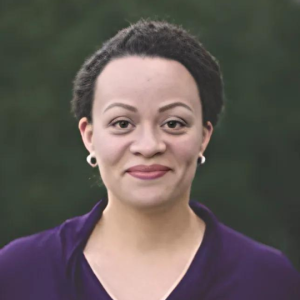
I am a biracial (African American and white) woman who serves on the pastoral staff of a small-town, majority-white congregation in western Illinois. I grew up in a mostly white Pentecostal church, where I never once heard a pastor addressed only by their first name, nor did I ever as a child refer to any adult without some title—Mr. or Mrs., Brother or Sister, Uncle or Aunt. In my current context, perhaps half of the congregation call me “Pastor Jessica.” Many others simply call me “Jessica”; children, in particular, are likely to call me “Miss Jessica,” because this is how they knew me for years prior to my pastoral call, as a lay leader in children’s ministry.
In our context, several factors affect whether or not someone uses a pastor’s title. Older members tend to give the senior pastor special honor; some refer to the senior pastor as simply “Pastor.” Younger members use titles less frequently, although they may use one when speaking about me to their children (e.g., “Show Pastor Jessica
your new Bible!”). Those who did not grow up in church may be less likely to call me “Pastor.” There may also be an unstated reluctance for some to call me pastor because I am a woman (and the first to serve as a pastor in the church’s 155 years).
For my own part, I continue to adjust to hearing myself called “Pastor” in a context where I have been known for over a decade prior to my call.
While I do not feel disrespected by those who do not use the title, I intentionally use it in certain situations (e.g., filling out a name badge at a church event) for the sake of our younger members. I did not grow up calling any woman “Pastor,” despite being in a denomination that technically ordained women. I would like the children I serve to see that God calls people to serve the church without regard for gender.
Won Kim
Senior Pastor
Christ Covenant Church
Villa Park, Illinois
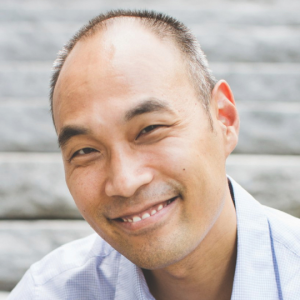
As a Korean American man serving in a predominantly second-generation Asian American suburban church, I hear my congregants refer to me in ways ranging from “Pastor Won,” “Won,” to simply “Pastor.” I’ve also noticed that depending on the context, what congregants call me is different. In casual conversation, I’m “Won,” but in emails from the same person, I’m “Pastor Won.” If we’re having a personal chat, I’m “Won,” but if we’re talking about ministry, I’m “Pastor Won.”
Some people ask me how I prefer to be addressed, and I tell them, “Whatever you’re comfortable with.” I’m certain a significant part of me is giving in to cultural pressures to be accessible and easygoing, even at the expense of my own preferences.
Re-entering a predominantly Asian American space after being away for many years, I expected a degree of formality. Growing up in immigrant Korean churches, I never dreamed of calling a pastor anything but “Pastor So-and-So.” On one hand, I’m grateful that there’s less “stuffiness” with people not feeling the need to call me “Pastor.” I’ve wondered if the informality is partly influenced by the fact that I am younger than most of my congregants and that most of us are children or grandchildren of immigrants, not immigrants ourselves.
In the end, what people call me doesn’t matter as much as the respect and trust my congregants have for me and the pastoral office. I’m a relatively new pastor, so I understand that trust needs to be earned. I’m grateful for every experience I’ve had in which someone trusts me with their difficulties and their struggles. As long as we have that kind of relationship, they can call me whatever they want!
Benny Amaya
Church Planter and Pastor
City Gateway Covenant Church
Compton, California
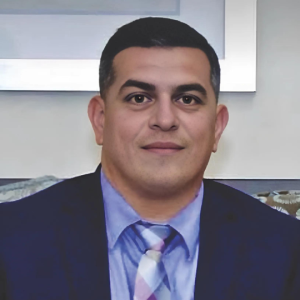
In the closing of the 2005 Ridley Scott film, The Kingdom of Heaven, the city is conquered and the baron asks the conquering king, “What does the city mean to you?” The king says, “Nothing.” Then he turns and tells him, “It means everything.”
We’re planting City Gateway among Gen Xers and millennials in a predominantly Black-and- brown-influenced culture. I would say that earning the title of “Pastor” has been a whole different level of processing what it means for me to be a pastor.
The pastoral call can become just that, a title. I have learned that it can be easy to hold a title that ends up being the center of people’s identity. This is something I steer away from, especially in our context of so much need. In this context, titles mean absolutely nothing. Even though God honors those he uses as pastors, that should never be at the center of our identity. In fact, Jesus exhorts the disciples in Matthew 7:21-28 not to fall into the title search, which can become all about the big I: “I did this and I am that.”
I love Jesus’s exhortation to Peter to “feed my sheep.” This I can relate to. When I became a dad, I literally learned the value of a gallon of milk—and I’m not referring to the price. The value of being able to provide and how that gives me definition as a dad has been absolutely breathtaking. This has also helped me process God’s work for me as a pastor. I see people who are tattooed from their neck down, coming from a background of so much brokenness—and then in the presence of the Father, they break for God. When people go to Bible study, get baptized, and grow in sharing the gospel, this absolutely makes me feel honored by God.
It makes me feel inserted into Paul’s list of titles mentioned to the church in Ephesus (4:11-16) and approved because I have been able to see God work through me according to the job description there. In this context, the title means everything!
Sherin Swift
Connections and Equipping Pastor
New Life Fellowship Church
Queens, New York
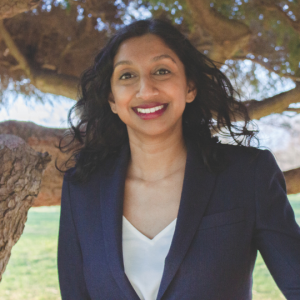
As an Indian American woman, I have had the privilege of serving in two distinct settings. I served in a Covenant church outside of New York City whose cultural roots are found in the broader American Black church experience. I went from being a congregant to being a minister with an MDiv on track for ordination. Broadly speaking, the cultural norm in Black churches is to use honorifics, but that congregation placed a high value on hospitality to newcomers, so many did not use their titles. However, clergy were encouraged to use titles, especially because several of us became ministers during our time there. It helped people recognize our new role. As one of the few non-Black members and the only non-Black clergy, I wrestled with what my leadership role should be. That wrestling left me uncomfortable with insisting on the title, which created problems when I needed to act from that authority. In retrospect, I realize it also undermined the respect due to the only other woman minister, a Black woman whom I shouldn’t have left alone to insist on the honorific.
Now I serve in a larger nondenominational, multiethnic church in New York City with multiple clergywomen on staff of various ethnicities. We value a more casual church culture, but the lead pastor makes sure to use our titles in public to reinforce our call and authority. With many immigrants from the global south and second-generation Americans in our congregation, the use of titles is highly varied. I do find that white congregants are less likely to refer to me as “Pastor,” while men and women of color are more likely to call me “Pastor” or “Pastor Sherin.”
I generally don’t worry about the honorifics because it can disrupt genuine connection, especially when many pastors have abused this sacred trust. I know who I am and that I act in Christ’s name—even when I have been called a witch for my ministry. It means a lot to me when congregants do choose to use my title—it means they acknowledge my role and respect my leadership and qualifications in a world that often questions my calling.


